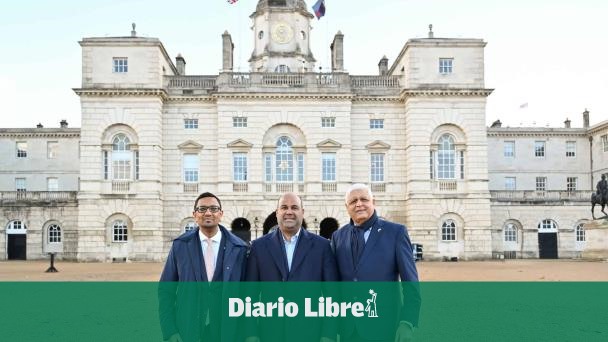MADRID, October 6 (EUROPA PRESS) –
The High Court of England and Wales has concluded that the king emeritus, Juan Carlos I, cannot be tried in England over an alleged abuse lawsuit filed by Corinna Larsen seeking 126 million pounds (around 146 million euros) in compensation. compensation.
“My main conclusion is that the High Court of England and Wales does not have jurisdiction to hear this claim. This is because the lawsuit has not been filed against the defendant in his country of residence, as is his default right; and the plaintiff “has not persuaded me that he has a strong, defensible argument that his claims fall within the exception to the default rule,” Judge Collins Rice said.
In the resolution, which Europa Press had access to, the judge has indicated that he does not believe that the defendant has submitted, or should be deemed to have submitted, to the jurisdiction of the High Court for his own conduct in this litigation. Until now.
The decision was announced this Friday after last July the court heard the defense arguments of Juan Carlos I, who was in charge of the British company Velitor Law.
The king emeritus’ legal team then asked that Larsen’s lawsuit be dismissed, considering that the British courts were not competent to try the lawsuit. The defense is based on Article 4 of the EU regulation on jurisdiction, which states that persons domiciled in a Member State, whatever their nationality, must be prosecuted before the courts of that country.
The lawyers stated in their brief, which Europa Press had access to, that the community rules apply in this particular case because they commenced before the end of the Brexit transition period, which was set to last until 31 December 2020.
Therefore, they insist that the Spanish courts are competent to handle Larsen’s claims. On this, they added that the “key question” was whether, in relation to the alleged acts of abuse, the UK was the place where the alleged ‘harmful event’ or ‘direct harm’ occurred, something which, as they pointed out, Larsen’s lawyers did not indicate.
CORINNA’S “LACK OF CREDIBILITY.”
Another argument put forward by the defense was the plaintiff’s “lack of credibility.” In this case, they highlighted that Larsen had requested permission to make new modifications to the original complaint. “Like its predecessor, it is incoherent, internally contradictory, and patently bad as a matter of law,” said the king emeritus’ defense.
At this point, he denied any “pattern of behavior” of abuse attributable to the former king, and reproached Larsen for limiting himself to recounting “several incidents” that, in the defense’s opinion, were “very different in nature.” .” , occurred sporadically over several years and were carried out by different people (not always the defendant) with different goals (not always the defendant).
Furthermore, he stressed that Larsen’s statements – which Juan Carlos I “categorically denied” – were not only “false” but also “inconsistent with public statements made by him” before the litigation began.
In fact, he recalled, after Juan Carlos I abdicated, on June 14 2014, Larsen “issued a statement of affection” in which he described him as “a man of deep humanity and courage, a loyal and always caring friend.”, as well as “Historical giants”.
On the other hand, the defense expressed discomfort over the fact that “the charges involve an alleged abuse of power that is inconsistent with the defendant’s important role in Spain’s successful Transition to parliamentary democracy, and with his long service as ruler”.
THE IMMUNITY OF DON JUAN CARLOS
Sources consulted by Europa Press indicated that the aim of the four-day hearing was to address preliminary issues that were still pending until the scope of the former king’s immunity was resolved.
On 6 December the Court of Appeal of England and Wales ruled that Don Juan Carlos enjoyed immunity in relation to his actions before his abdication as King of Spain, in 2014.
This court decision implies that Larsen’s lawsuit, which places the time frame of the alleged abuse between 2012 and 2020, can only proceed in the UK courts for what happened after 2014.
The businesswoman reported in her lawsuit that Juan Carlos I had abused her after she ended their relationship. First to try to get him back and then as revenge to hurt his business, according to Larsen.
She is demanding compensation from the king emeritus for the costs of medical treatment for her mental health, for the “installation of personal security measures and daily protective services” and for the hiring of “former diplomats and former government officials” to intervene to “end the abuse” she said she had accept.

“Entrepreneur. Internet fanatic. Certified zombie scholar. Friendly troublemaker. Bacon expert.”






